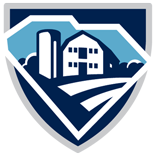SUSAN JONES, Apiculture Specialist
APICULTURE
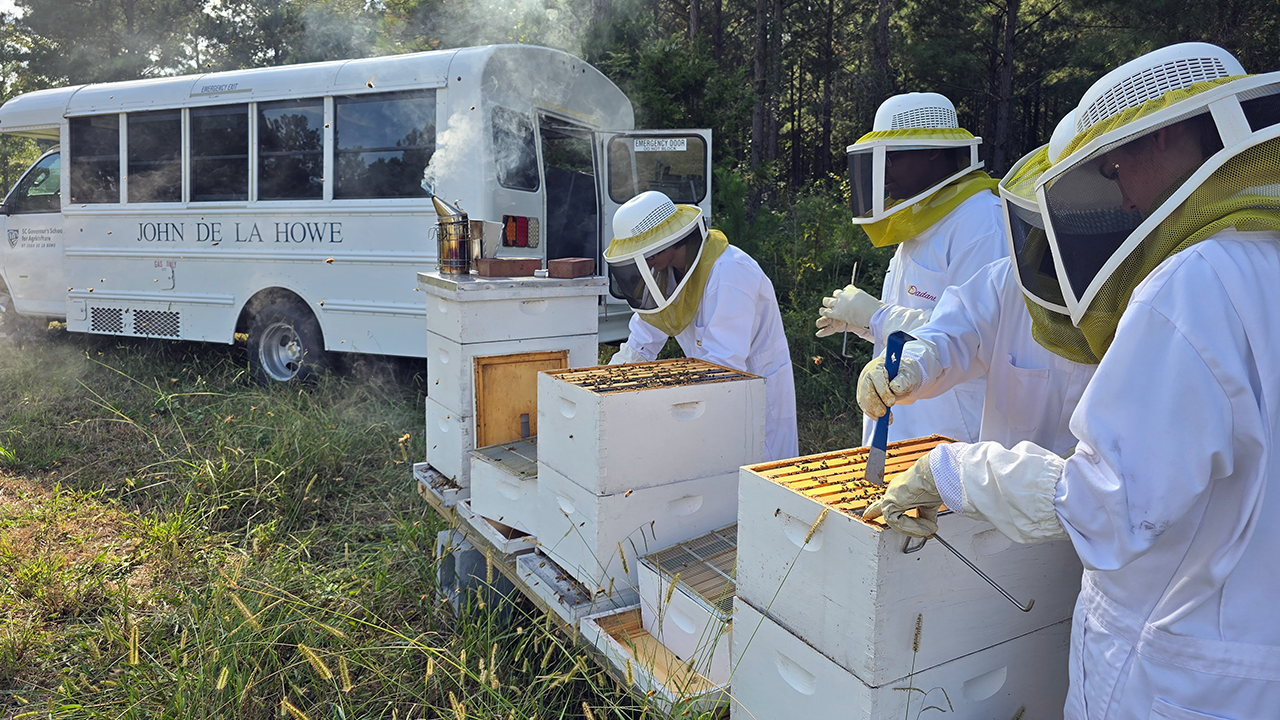
The goal of the Apiculture and Pollinator Program is to incorporate teaching and interaction with pollinators into all of the agricultural pathways at John de la Howe.
This will provide each student an opportunity to experience the impact that pollinators have on their specific area of focus, and as a result, develop a principled approach to protecting and sustaining them. More in-depth instruction and certification are provided to those students selecting Apiculture and/or Pollinators as their Supervised Agricultural Experience (SAE).
Managed honey bee colonies are used as the primary tool of instruction due to the ability to better interact with them over other pollinators. However, instruction is not limited to just this one type of pollinator. Attention is also given to natural habitats for native bees, butterflies, bats, and birds – all playing various roles in the overall pollination process.
Building Our Program
Six honey bee colonies were established on the campus in Spring 2024. Twelve more colonies were added in the Spring of 2025 bringing our total to 18 colonies across 4 bee yards on our 1300-acre campus.
Bees are managed, but wild, requiring careful management of not being over-disturbed in a teaching environment. They need to be allowed to do their work with minimal interruption. The goal of building to 20 colonies will allow weekly interaction for all students without causing undue stress on the bees.
As the bees work to pollinate, they will also collect nectar – the wonderful reward for their pollination services. A well-managed honey bee colony can easily produce a surplus of between 30 to 60 pounds of honey per year. Multiplied by 20 colonies, that could easily be 1,200 pounds of honey each year!
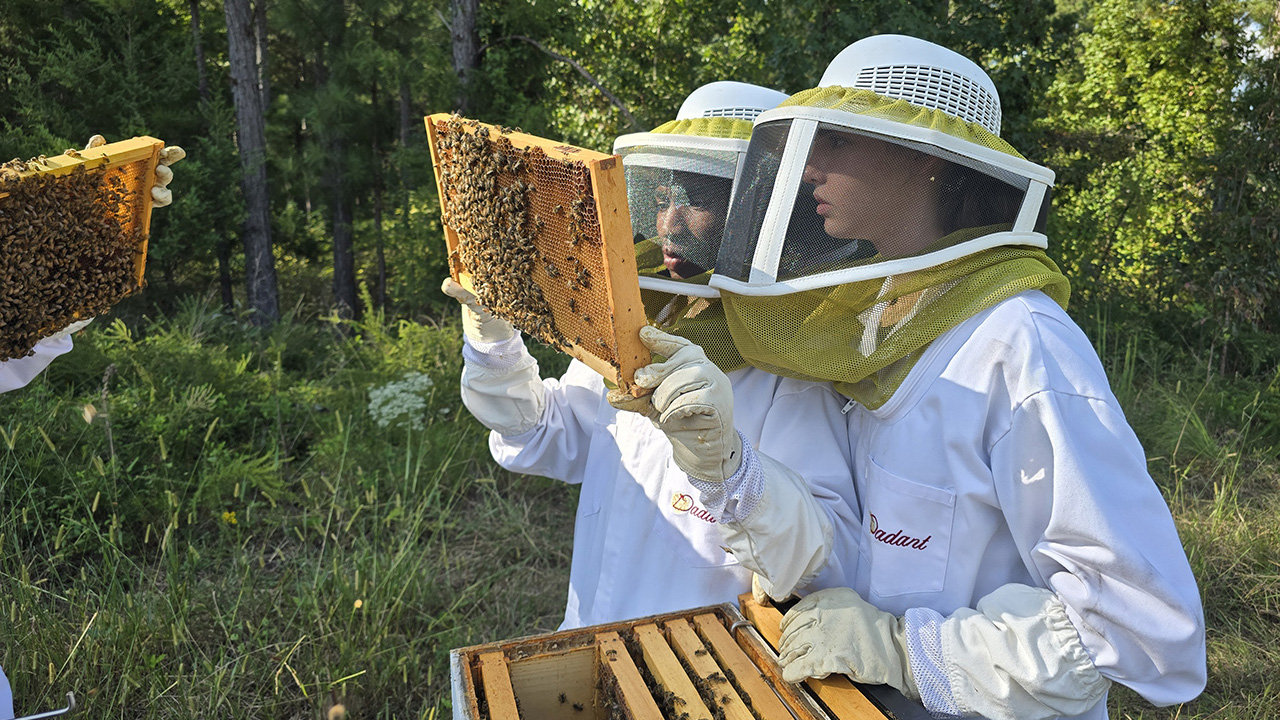
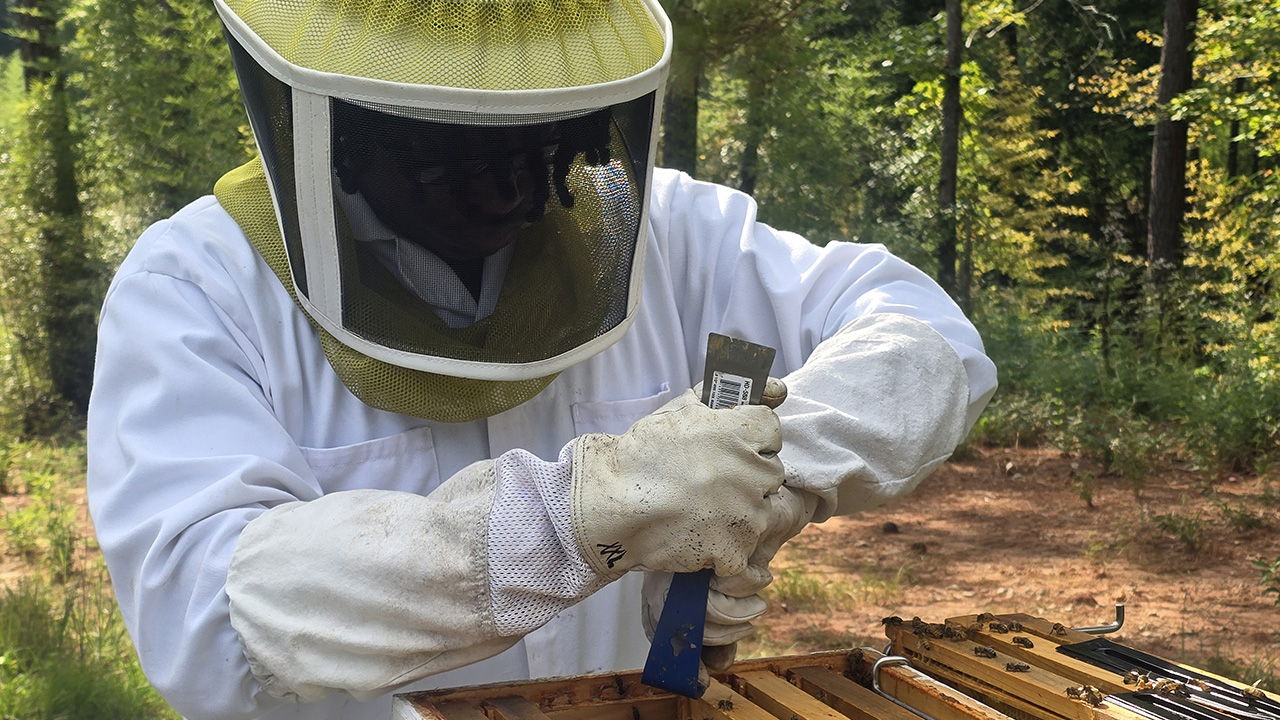
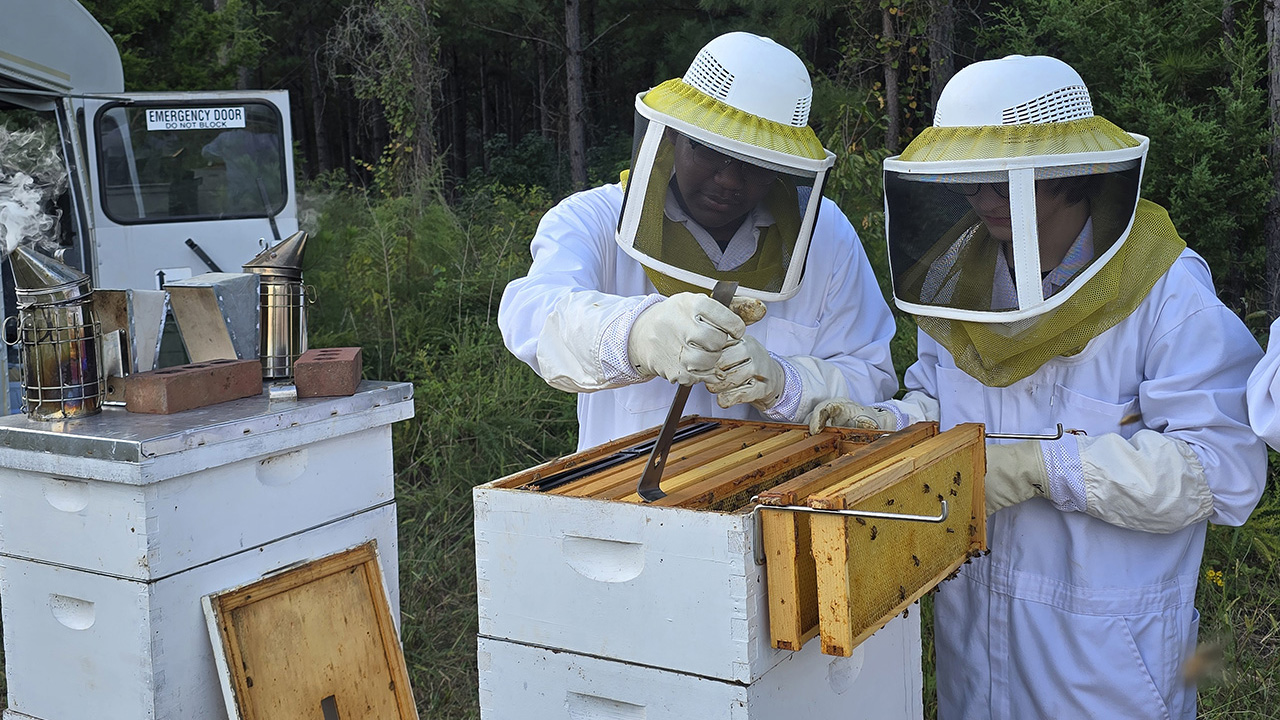
Club APIS
Club APIS was established in 2024 to support students and members of the community interested in learning more about our valued pollinators and honey bees. Each monthly meeting will feature a guest speaker or a fieldwork activity.
Club APIS meets monthly on the second Monday from 6:30-8 p.m. at the Education Center. Meeting dates for Fall 2025 are September 8th - Honey Tasting Around the World with Apiculturist Susan Jones; October 13 - Varroa Mite Management with Master Beekeeper Allen Johnson of Johnson Bee Supply in Williston, SC; November 10 - Exploring Bee Species of Southeast Asia with Lizanne Melton of Edgefield, SC, and December 8 - Making Honey Candy with Angela Sprow of Honey Girl Goods, Jackson, SC.
Community Support
A generous grant by Duke Energy has funded the Apiculture Program expansion to include the addition of a Certified Honey House on the John de la Howe campus. This will permit the students to not only interact with the bees, but also harvest, bottle, label, and market this product of the hive – bringing the experience full circle. Learning through this process will prove invaluable to the students as they develop their own agricultural endeavors, impact their communities, and strengthen South Carolina agriculture.
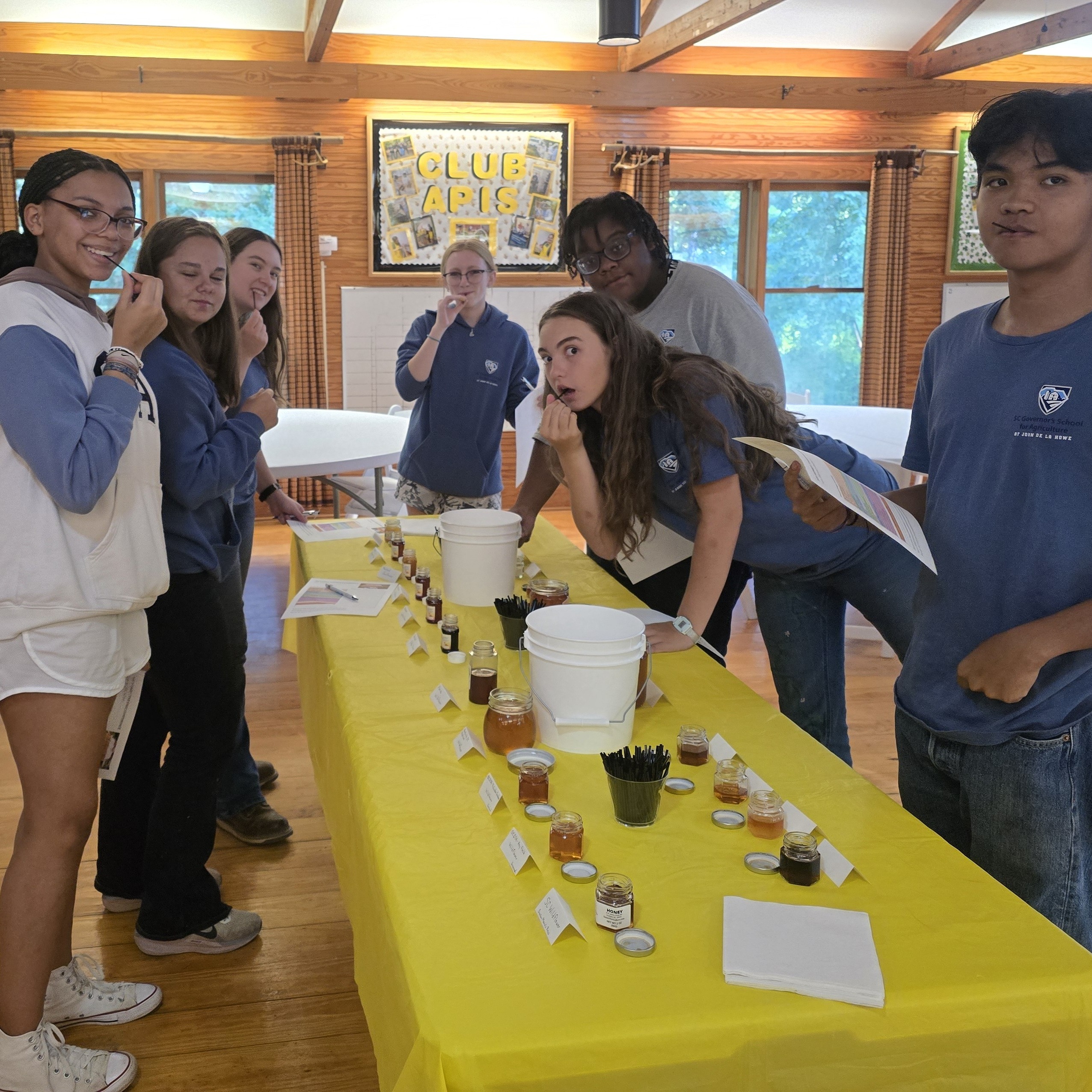
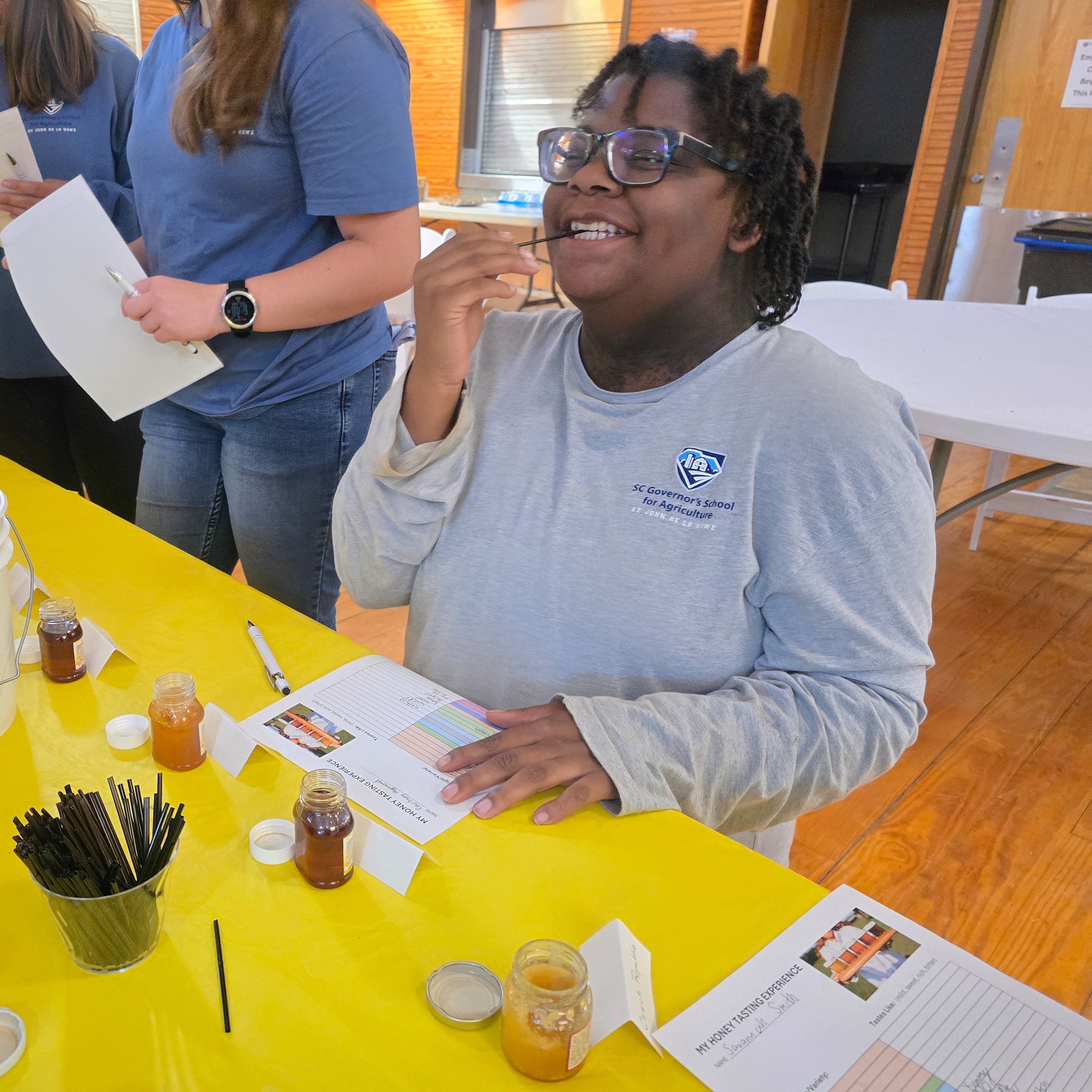
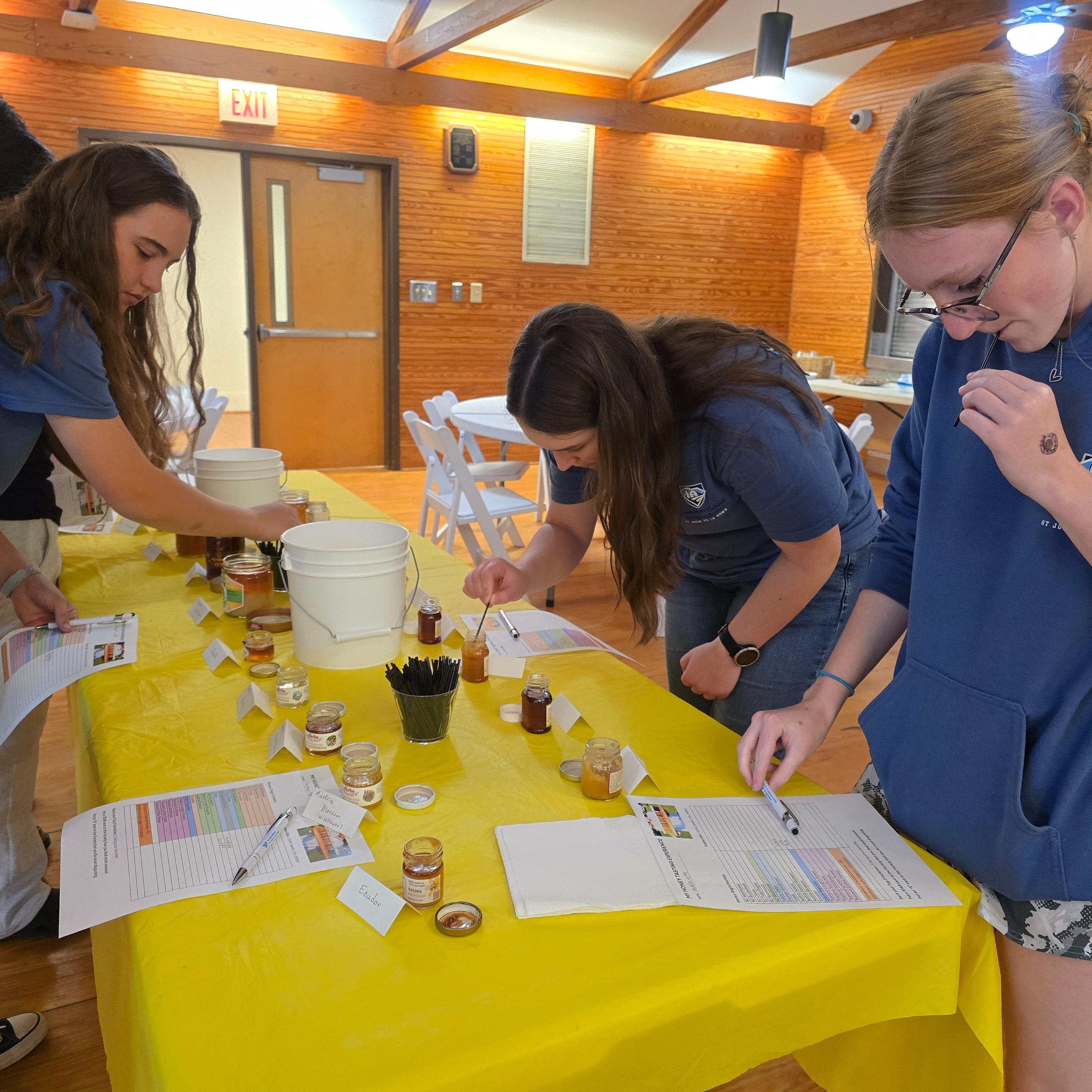
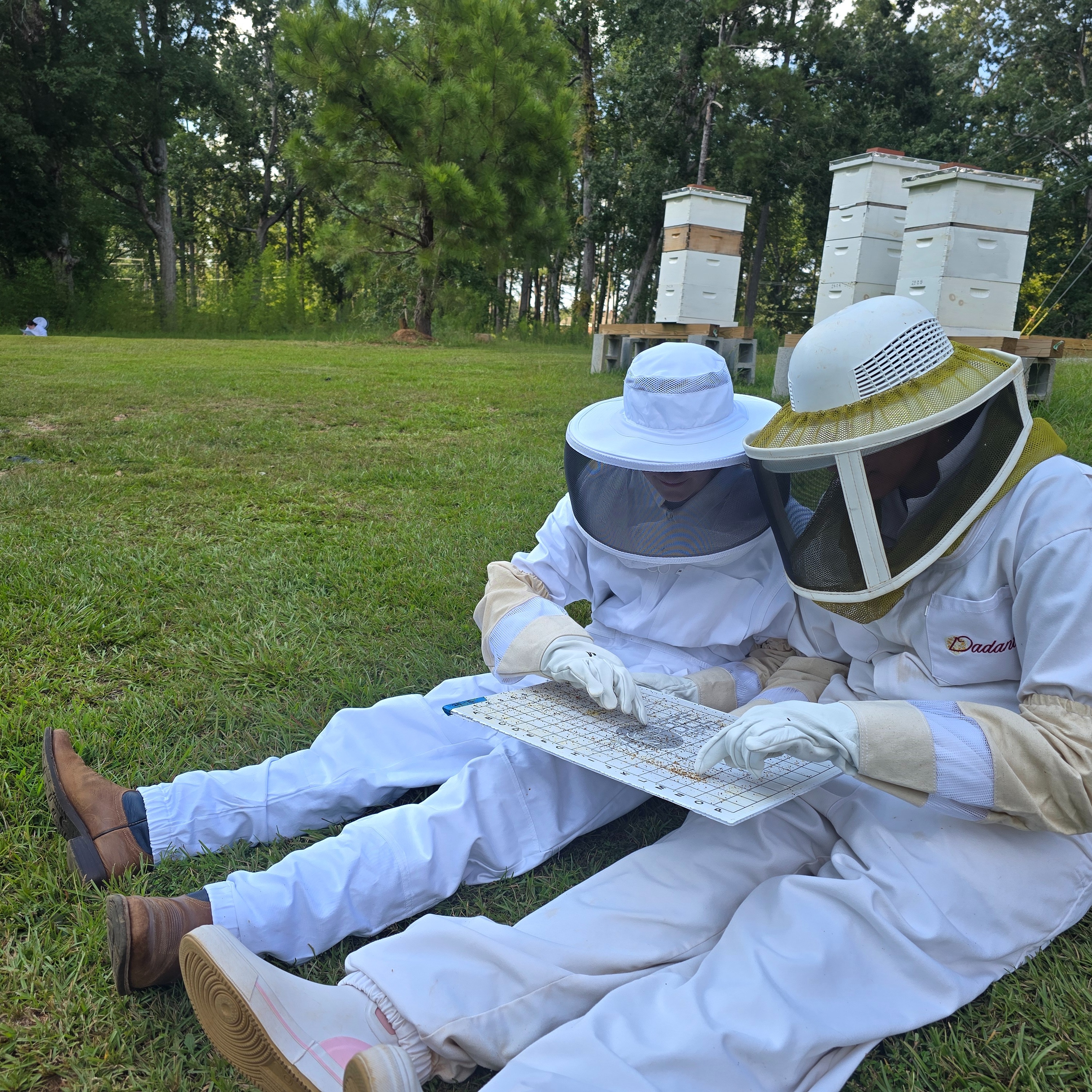
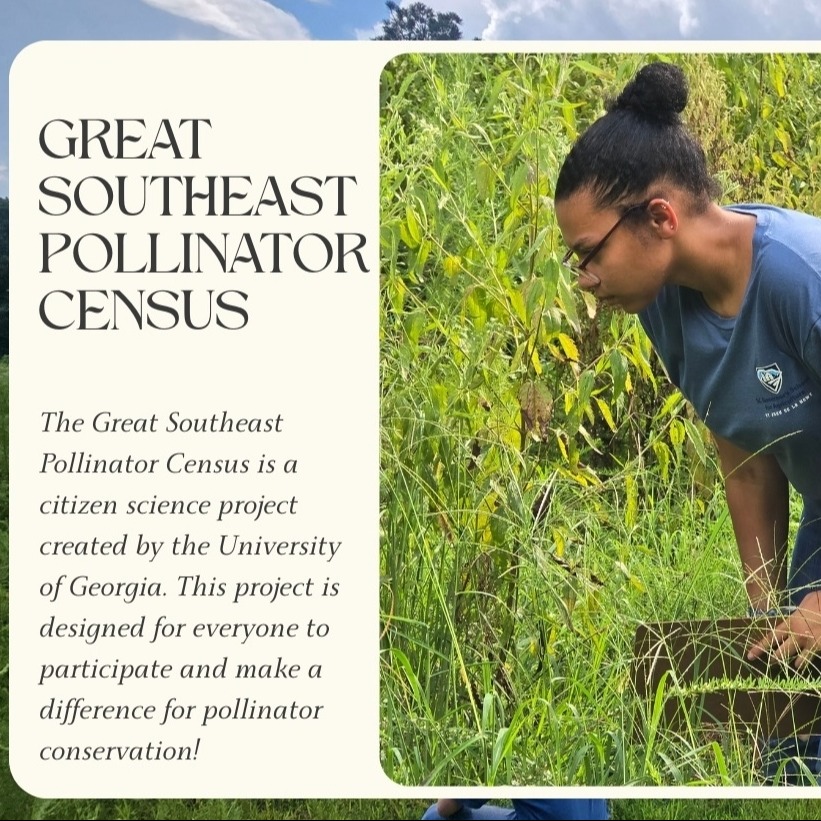
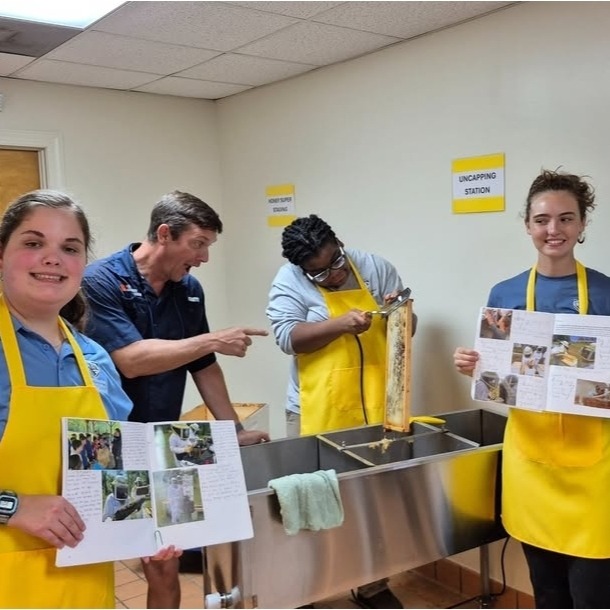
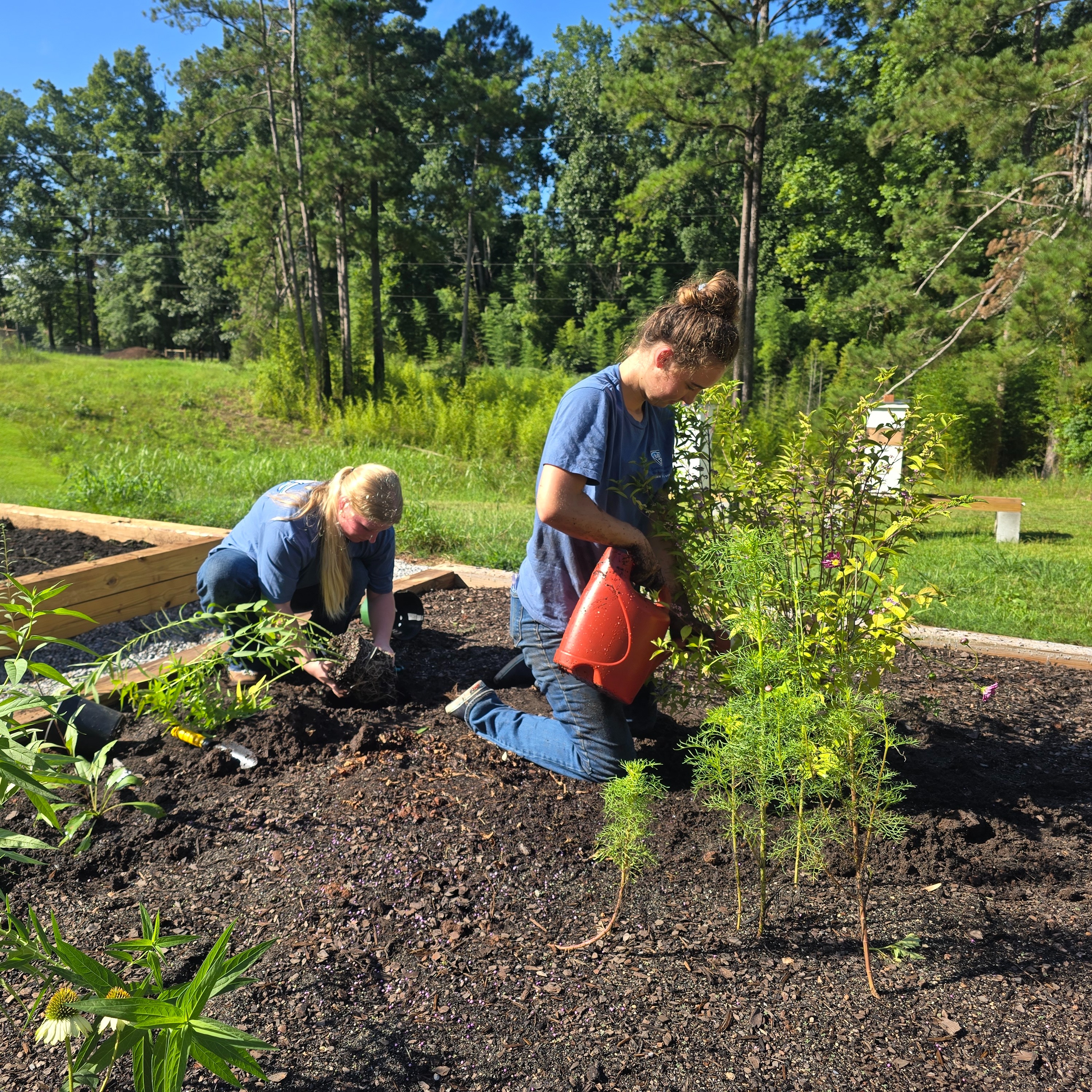
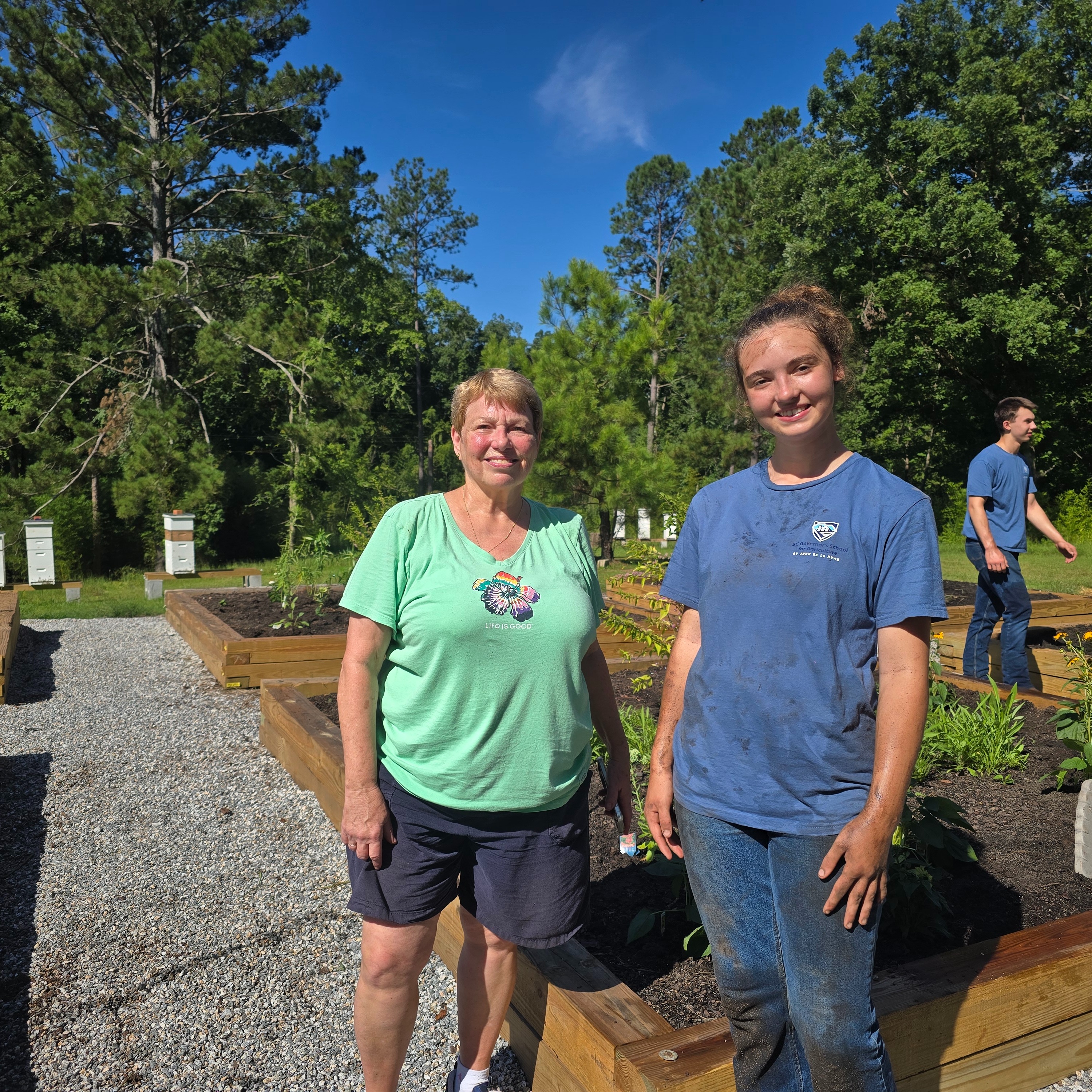
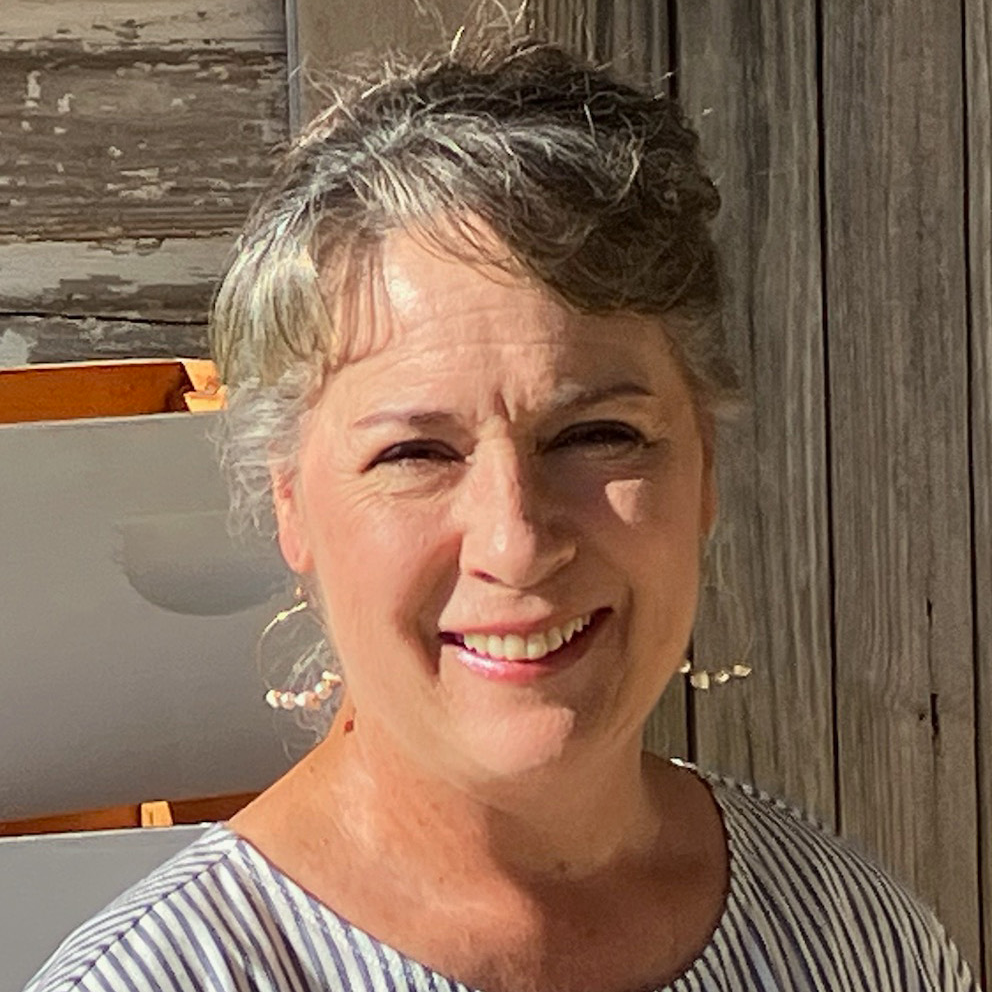
What's Happenin' In The Hive
Our bees are flying with purpose, bringing in pollen from a variety of sources as our landscape is ablaze with fall bloom. Goldenrod and asters are providing a much-needed nectar and pollen source ahead of the oncoming winter. The queens are reducing the brood area, and the colonies are decreasing in population in anticipation of cooler months. We are actively treating for varroa mites and students are monitoring the progress via boards inserted below the bottom boards to catch mites that drop.
Ten of our students are working toward certification with the SC Master Beekeeper Program this school year.
